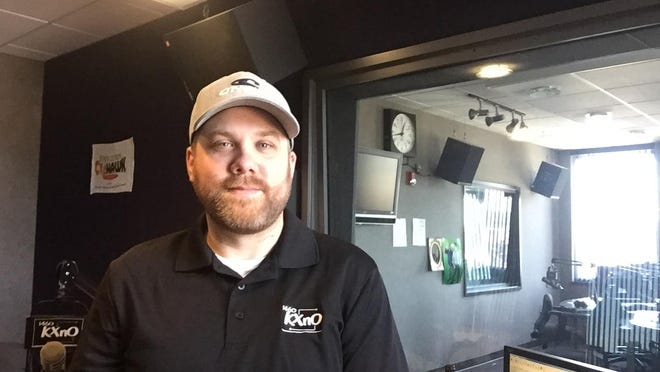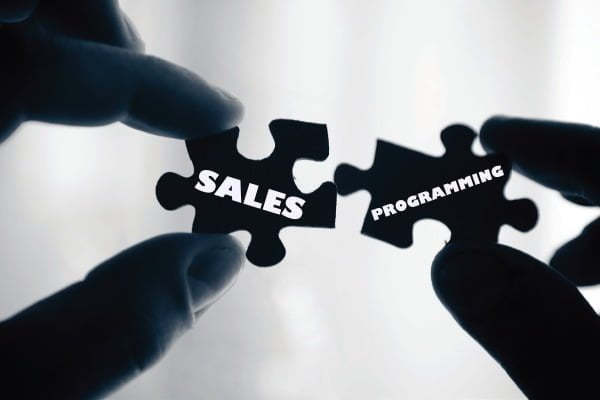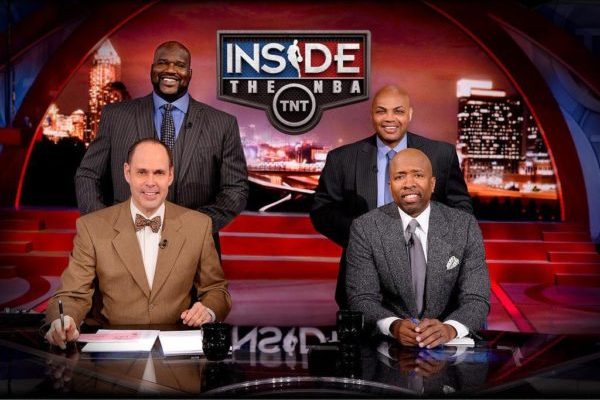Buildings that house radio stations have always been literally divided into two sides. There’s the side of the building that houses the studios. It’s where live shows are done and where production pieces are put together. Then there is the business side, where you will find the executive offices and sales bullpen.

It’s hard to believe now, but there was a time where you tended to stick to your own side. Sure, sales people had a favorite member of the air staff to pitch for endorsements and talent had a favorite seller to make sure their ideas came to life as they envisioned, but it really was possible to go a full business day without interacting with people from the opposite side of the building.
Now, we live in a world of collaboration. Hosts bring potential clients to ad reps. Ad reps work with PDs to develop branded content ideas to take to clients. It is that Steven Spector, program director of 610 Sports in Kansas City, told me he encourages his staff to be a part of as often as possible.
“Relationships with the clients and relationships with the sales staff are vitally important to the success of a radio station and its talent,” he told me in an email. “In non-COVID times, when everyone was in the building, the talent who would walk the sales pit and just interact with the AEs was often more successful in getting endorsements. Sometimes endorsements and promotions are created out of conversation unrelated to business.”
Nick Cattles, who hosts the afternoon show on ESPN Radio 94.1 in Virginia Beach, says it is a fine line for hosts to walk sometimes. Sure, he wants to help his own bottom line however he can, but he is also aware that unchecked ambition could create problems for folks on the sales side.

“I don’t know what kinds of relationships, good or bad, may already be established,” Cattles says. “The worst thing I could do is act as interference in any possible deal that sales is working on. I am, however, always open to discussing ideas, pitches, segments, calls and/or zoom meetings with any of the sales staff if it could help in any kind of way. I consider my job to help sales achieve their goals in any way I can, instead of trying to be the point person.”
All Cattles asks is that he not have an endorsement sprung on him. He thinks most of his sales staff would agree that he is easy to work with.
“The way our building works is that whenever the staff has an idea or is contacted by a company, they reach out to and ask if I’d be comfortable promoting that product/service/bar on the air. The vast majority of the time, the answer is yes.”
Andrew Downs is the program director of KXnO in Des Moines. It is a station that was built and thrives on sales relationships. He told me many of their clients are lifers with the station. That could be the result of KXnO talking Cyclones and Hawkeyes all day long. It could be the result of who is on the station and the relationships they have gone out and formed in the Des Moines community.
One thing Downs knows is undeniable is that the strength of those relationships can only benefit himself and his staff. That is why he says everyone at KXnO treat clients like they are part of the team.
“We’ve had several clients on-air for well over a decade, whether that be endorsements, station sponsorships, or simply running ads within our local shows. We’ve had local agencies that steer their clients towards us because they’ve seen the results of working with our talent. We’ve had businesses change ownership but continue to work with us. We’ve even had the General Manager of a local auto group change jobs, but bring us with him to the new company.

“We foster relationships, both with our clients and our audience, and so when we put the two together everyone feels like we’re all helping each other out. This was never more true than in the past year between the firing and subsequent re-hiring of our staff followed by the pandemic where many of our clients have relied on the strong bond we’d helped them form with our audience. “
“Ah, yes!” you’re probably saying to yourself. You knew that KXnO and Andrew’s name sounded familiar. You just couldn’t remember why.
It is the station where nearly the entire air staff was laid off only to be rehired after listeners and advertisers told iHeartMedia management that they were done supporting the station if it was going to lose its local identity. In response, not only was everyone that was laid off eventually re-hired, but KXnO got an FM simulcast to strengthen its signal.
Downs told me that he knew his station’s clients valued what was on air at KXnO. It was that moment though that he could say that what he had suspected was definitely true. KXnO was as important to its advertisers’ business as the advertisers were too KXnO’s.
“Brands are important, and we have a strong one with KXnO in Des Moines, but the brand can’t sell a product to our audience; our people do that. Without those people our clients understood that their message was not going to be effectively communicated, and they reacted accordingly. I know they were all glad when we were re-hired, but that was not something anyone expected to happen; they were making a business decision to place their money elsewhere because they understood that it was our connection with the audience that created loyalty between their customers and their business, not some monolithic brand or national voice.”
Not every advertiser is going to be right for every host. Even if a host is really into a particular product or business, it may not be a fit for the station or it might step on the toes of someone else’s longer held deal. Spector says he is usually open to any advertising idea a rep brings to him. He just needs a few answers first.
“Most important, the advertiser has to fit who we are as a station and who our listeners are. Then, it has to fit our host. Second, what type of money is being spent & what are the expectation from the client. If those two don’t match then there is a conversation that has to be had.”

Living in a silo isn’t going to work inside of a radio building these days. Sure, the two sides of the business can sometimes have conflicting goals, but right now the industry is in a state of needing to mine every bit of potential revenue that exists. A collaborative approach, where each side makes their needs and goals clear, benefits programming and sales equally.

Demetri Ravanos is a columnist and features writer for Barrett Media. He is also the creator of The Sports Podcast Festival, and a previous host on the Chewing Clock and Media Noise podcasts. He occasionally fills in on stations across the Carolinas in addition to hosting Panthers and College Football podcasts. His radio resume includes stops at WAVH and WZEW in Mobile, AL, WBPT in Birmingham, AL and WBBB, WPTK and WDNC in Raleigh, NC.
You can find him on Twitter @DemetriRavanos or reach him by email at DemetriTheGreek@gmail.com.






